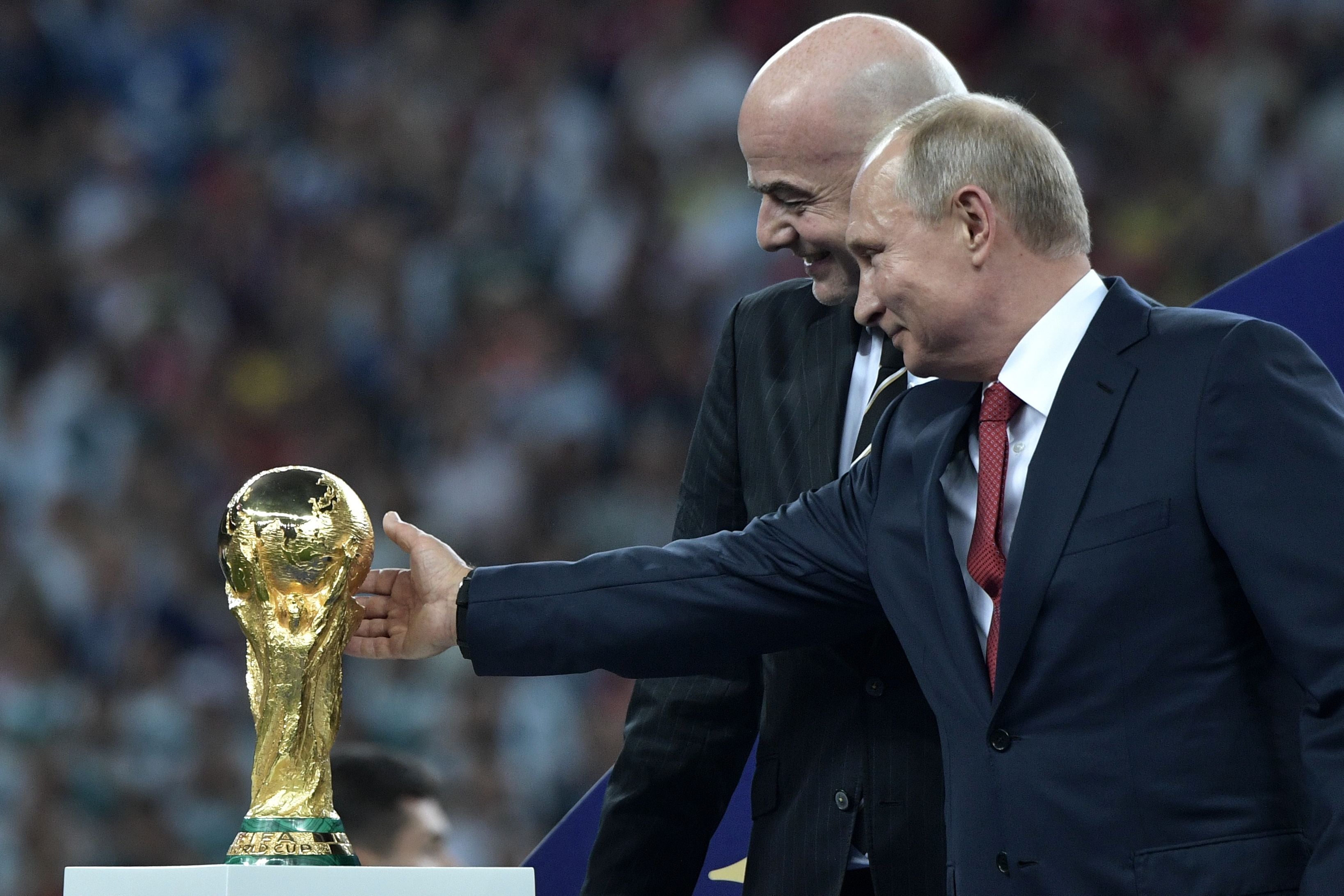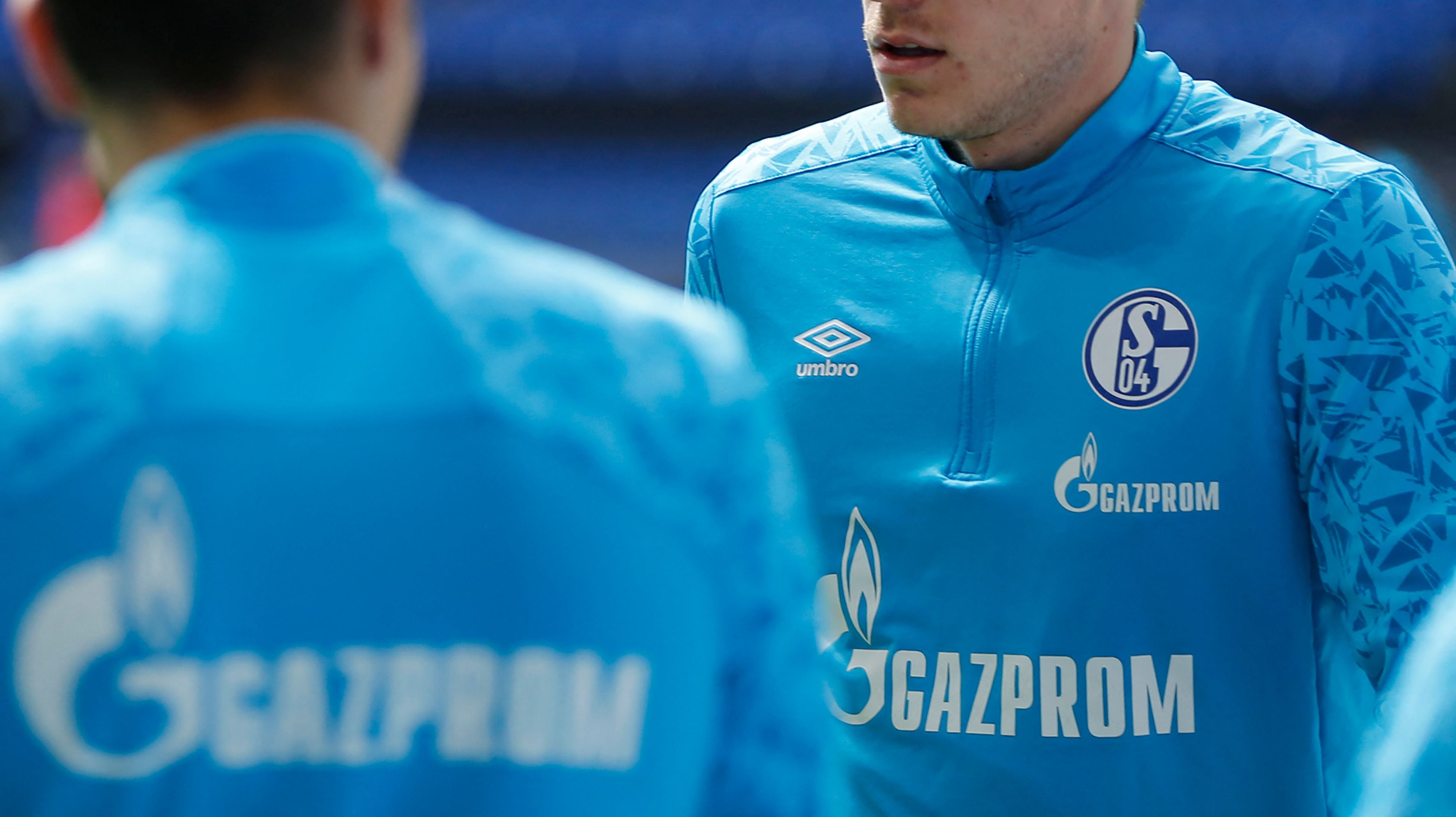Football set to be forced to reassess its relationship with Russia
The invasion of Ukraine has the game scrambling, with Russia’s influence over ownership, sponsorship, governance and more under scrutiny like never before, writes Miguel Delaney


Your support helps us to tell the story
From reproductive rights to climate change to Big Tech, The Independent is on the ground when the story is developing. Whether it's investigating the financials of Elon Musk's pro-Trump PAC or producing our latest documentary, 'The A Word', which shines a light on the American women fighting for reproductive rights, we know how important it is to parse out the facts from the messaging.
At such a critical moment in US history, we need reporters on the ground. Your donation allows us to keep sending journalists to speak to both sides of the story.
The Independent is trusted by Americans across the entire political spectrum. And unlike many other quality news outlets, we choose not to lock Americans out of our reporting and analysis with paywalls. We believe quality journalism should be available to everyone, paid for by those who can afford it.
Your support makes all the difference.Uefa officials told football figures to dissuade politicians from publicly lobbying for the 2022 Champions League final, which has been moved from St Petersburg to Paris,The Independent has been told.
Sources in the western European game have privately said they were under the impression that their federations could be blacklisted from hosting future tournaments or marquee fixtures if big plays were made to replace the Russian city in the wake of the invasion of Ukraine.
There was even open speculation, right up until Thursday morning, over whether this was because Uefa did not want to aggravate Russia.
Uefa did not directly respond to questions about this.
The very fact there were such suspicions shows how football has become so intertwined with business interests from Russia, right up to one of the Champions League’s main sponsors being Gazprom, the Russian majority state-owned energy corporation.
Much of this was discussed at an extraordinary meeting of Uefa’s executive committee on Friday morning, sparked by – and under the euphemistic language of – “the evolution of the situation between Russia and Ukraine”. Illustrating the point, one member of that committee could not be there. That was Alexander Dyukov, who is considered one of Russia’s most talented corporate executives, and likely the next chief executive of Gazprom, who was instead in Moscow to meet with his country’s president, Vladimir Putin. Uefa’s own deal with Gazprom was not mentioned in their statement about the meeting. The game as a whole still has much to consider.
All of this naturally pales next to the real-world consequences of the crisis but, just as “it can’t be underestimated the world is changing in front of us” – to quote one senior Westminster source – so will football change. The moving of the Champions League final almost serves as a symbol for how the landscape of the game will transform, right up to who competes and the influences on top clubs.
“It’s a huge issue for Uefa and, to an extent, Fifa,” Dr Rob Wilson, football academic at Sheffield Hallam University, says. “The Russian state is heavily involved in sponsorship and commercial elements.”
Whether the governing bodies are prepared for this is a huge question. Government sources describe international football officials as “the most cack-handed diplomats ... They’re totally unprepared and think they can ride it out, but now their hand is going to be forced.”
They will first of all have to make “necessary decisions” on forthcoming fixtures. Uefa confirmed Russian and Ukrainian national and club teams will have to play at neutral venues until further notice. That currently only affects Spartak Moscow, drawn against RB Leipzig in the Europa League round of 16, but will have to also be addressed by Fifa for the World Cup play-offs.
Sweden, Poland and the Czech Republic already issued a joint statement saying they “do not consider travelling to Russia and playing football matches there”. The Russian national team were due to play Poland at home, in another politically charged fixture, and would have been due another home match against Sweden or Czech Republic for a place in Qatar if they won. Neutral venues are now expected.

Football has already inevitably been suspended for 30 days in Ukraine amid the announcement of martial law. The Brazilian players at Shakhtar Donetsk and Dynamo Kyiv have already asked their government for evacuation from the country.
This points to how long it is since European football has had to deal with a crisis like this, on a scale like this. The last time a World Cup featured two countries at war was 1982, with England and Argentina.
It raises greater moral questions for the governing bodies, too.
Given that Russia is in the process of being made a pariah state, should Fifa and Uefa treat Vladimir Putin’s regime like apartheid South Africa?
Many experts on the area, as well as a few sources, doubt this. Fifa have so far only said they are “monitoring” the situation. Other sources insist there needs to be “room for escalation”.
“Uefa will only take real sanctions if the international community does,” Kevin Veyssiere, author of Football Club Geopolitics and founder of the website and Twitter account of the same name, says. “For Uefa, football is not politics. As soon as the situation becomes tense between two countries – like with the Ukraine jersey at Euro 2022 or the Munich stadium in LGBT colours – Uefa plays the apolitical card.
“How can Uefa exclude Russia when we know the weight of Gazprom? Most often, the position from the major world sports organisations on international issues is extremely neutral.
“Yugoslavia was excluded by Uefa from Euro 92 as a result of a resolution voted at the United Nations to exclude teams representing the country from sports competitions, following the bombardment of Sarajevo by the Milosevic government.
“Uefa will make their decisions based on international sanctions.”

That is where Uefa’s hands could be forced.
Senior Westminster sources say they expect sanctions to be increasingly “severe”, and that people do not yet realise the extent of the effect. The idea is basically to make life so difficult for Russian people, right up to oligarchs, that the cost of the war becomes domestically unfeasible. If Russians were removed from Swift (the Society for Worldwide Interbank Financial Telecommunication), for example, it would mean no money going in or out internationally.
This would have a huge effect on many football figures in even indirect ways.
“Serious sanctions would be a major political statement and at odds with Uefa, insofar as linking politics and sport goes,” Dr Wilson says. “I’d expect lots of visa and work permits to be withdrawn.”
The crisis has already dragged in no less a club than the European champions. On Thursday in the House of Commons, Labour MP Chris Bryant called on Boris Johnson’s government to seize assets from Roman Abramovich, as he revealed details from a leaked 2019 Home Office document showing concerns about alleged “links to the Russian state”. The backbencher said the Chelsea owner “should no longer be able to own a football club”.
Mr Bryant told the Commons the document said Mr Abramovich “remains of interest to HMG [Her Majesty’s Government] due to his links to the Russian state and his public association with corrupt activity and practices”.
Chelsea did not respond to request for comment. Abramovich has secured a series of legal apologies from media over claims of links to Putin, including recently from HarperCollins, for publishing claims he bought the London club on the Russian president’s orders.
Abramovich’s name was earlier mentioned in parliament by Labour MP Margaret Hodge, along with that of Alisher Usmanov, the influential investor in Everton. Usmanov has a £30m first-refusal agreement in place for the naming rights of the Merseyside club’s new stadium, and sponsors their training facility.
“Investments into teams is the next big issue as we start chasing down funds,” Dr Wilson says. “And don’t forget the sponsorships that operate.”
Manchester United on Friday afternoon confirmed they would be withdrawing sponsorship rights from Aeroflot. Schalke announced that they would be removing the logo of main sponsor Gazprom from their shirts, to be replaced by their own name, but Uefa hasn’t been so quick to publicly address its own sponsorship.
Mere hours before the invasion, Atletico Madrid’s Metropolitano stadium was filled with the sound of Piotr Ilyich Tchaikovsky’s “Piano Concerto No 1”, the music used in the Gazprom advertisement Uefa broadcasts at fixtures for their partnership. These are all the official arrangements in the game.
There is then the even more problematic unofficial arrangements. Numerous sources speak of “rivers of corrupt Russian money” running through the sport, keeping corners of football all over Europe afloat. It is possible the crisis will expose this.
The whole story should shed light on the problematic nature of the broader game’s wilful acceptance of whatever money is going. As cryptocurrency deals currently take hold, it emphasises how very few questions are ever asked, and even fewer answers are given.
Various communication departments are still trying to wait and see how this plays out. There’s no strong line, because there is an eternal – and increasingly unsustainable – dance between football and politics.
The last few days have shown they are inseparable. They now pose more searching questions than football has seen for a long, long time.




Join our commenting forum
Join thought-provoking conversations, follow other Independent readers and see their replies
Comments